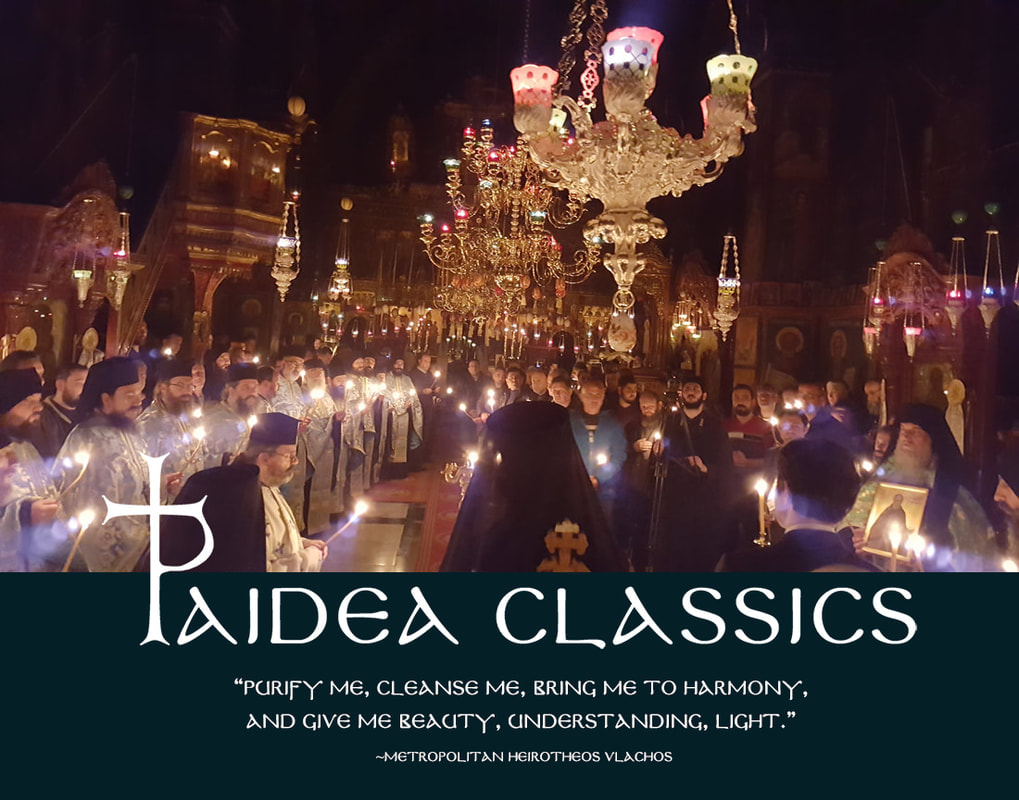|
A Homily given by Hieroschema Monk Nilus of St. Arsenius Hermitage.
The First Ecumenical Council and who can interpret the Holy Scriptures Beloved of God, today, as we commemorate the Holy Fathers of the First Ecumenical Council, let us consider Scripture interpretation, and specifically ponder the question: Who is trustworthy to interpret the Holy Scriptures? I pose this question because Arius, whom our Holy Fathers withstood, based his heretical teaching upon his personal interpretation of the Scriptures. So let me ask again: Who is trustworthy to interpret the Holy Scriptures? I would like to begin answering by bringing forward a comment of the contemporary monk Theocletos of Dionisiou Monastery on the Holy Mountain. Father Theocletos is mentioned in the book “Anchored in God” as a noteworthy monk of the Holy Mountain. This book is authored by Constantine Cavarnos who visited Athos in the 1950’s and wrote of his experiences there. When I visited the Holy Mountain in 1986 I heard about Father Theocletos as a monk who is both spiritual and scholarly. At that time he was living a semi-reclused life, residing in a house just outside the monastery. I visited him and asked a number of questions. One, which I had often been asked by Protestants, was, “Why is it that we Orthodox have so little of the New Testament in our services?” So Father answered: “It is Protestantism to read the Scriptures and interpret them. In the Orthodox Church we go by the writings of the Holy Fathers. The Holy Fathers lived the Gospel commandments, they were purified, they were illumined by the grace of the Holy Spirit, and their writings proceeded from the illumination they received.” He then encouraged me to read the Holy Fathers. In addition to this we could also make reference to St. John Cassian. Somewhere in his writings he poses the question, “Why is it that we find variant opinion among commentators of the Holy Scriptures?” And he answers, “Because before being purified from the passions they rush into the work of interpreting the Scriptures.” So, for us, our Holy Fathers, such as those we commemorate today, are the interpreters of the Holy Scriptures and they are our theologians; they set down doctrine for us. Let us also consider what theology is, since this also speaks of the state of grace acquired by the Saints which enabled them to interpret the Scriptures. Archimandrite Zachariah explains this well in relating how his spiritual father, Elder Sophrony defines theology. He writes: For Elder Sophrony, theology is above all an abiding in God. It is accompanied by the saving and regenerating power of the Spirit, Whose nature although it cannot be declared, nevertheless conveys an illuminating revelation. The man who bears this state bears ‘the word of life’ (Phil. 2:16)…. In his book on Saint Silouan, Elder Sophrony confirms that true theology is neither the fruit of intellectual erudition, nor the conjecturing of man’s reason, but rather the narration of an important occurrence which is the encounter between the spirit of man and the Living God. (Man the Target of God, pp. 101-2) And Father Sophrony compares the rational approach of man to theology with that which is the fruit of man’s experience of grace as follows: With iron drills men drill the earth’s crust for oil, and are successful. With their intellectual powers they drill heaven for the fire of Divinity but are rejected of God because of their pride. Divine contemplation is accorded to man, not in those precise moments when he seeks it, and it alone, but when his soul descends into the hell of repentance and does really feel that she is the meanest of creatures. Contemplation forcibly attained, as it were, through the reason is not true but only seemingly contemplation. To accept such contemplation as truth creates conditions in the soul which may prevent the action of grace and make genuine contemplation impossible. Knowledge revealed in the contemplation which proceeds from grace surpasses even the most sublime creations of the imagination, as St. Paul affirmed when he said, ‘Eye hat not seen, nor ear heard, neither have entered into the heart of man, the things which God hath prepared for them that love Him.’ (ICor. 2:9) When man, as happened with the Apostles, has been caught up by grace in to a vision of Divine Light, he afterwards translates into theology the things he has seen and known. Authentic theology consists, not in the conjecture of man’s reason or the results of critical research but in a statement of the life into which man has been introduced by the action of the Holy Spirit. (Saint Silouan the Athonite, pp. 169-170) Let us, therefore, put our trust in our Holy Fathers who experienced this state and thank God for the great inheritance of their writings—their expositions of true theology—which He has bequeathed us. We should not expect to acquire the state of grace nor illumination they experienced. However we shyuold be grateful to God for their teachings. This is also a reason to grow in our love for our Lord for He has not left us orphaned but has raised up for us the Holy Fathers to preserve the Faith for us. Through the prayers of our Holy Fathers may our Lord Jesus Christ hold us fast in the true faith and save us. Amen. A good follow-up to this article: How to Study Scripture from An Orthodox Perspective
1 Comment
|
The
A collection of articles and resources useful for Orthodox Christian parenting and homeschooling. CategoriesArchives
March 2022
|

 RSS Feed
RSS Feed